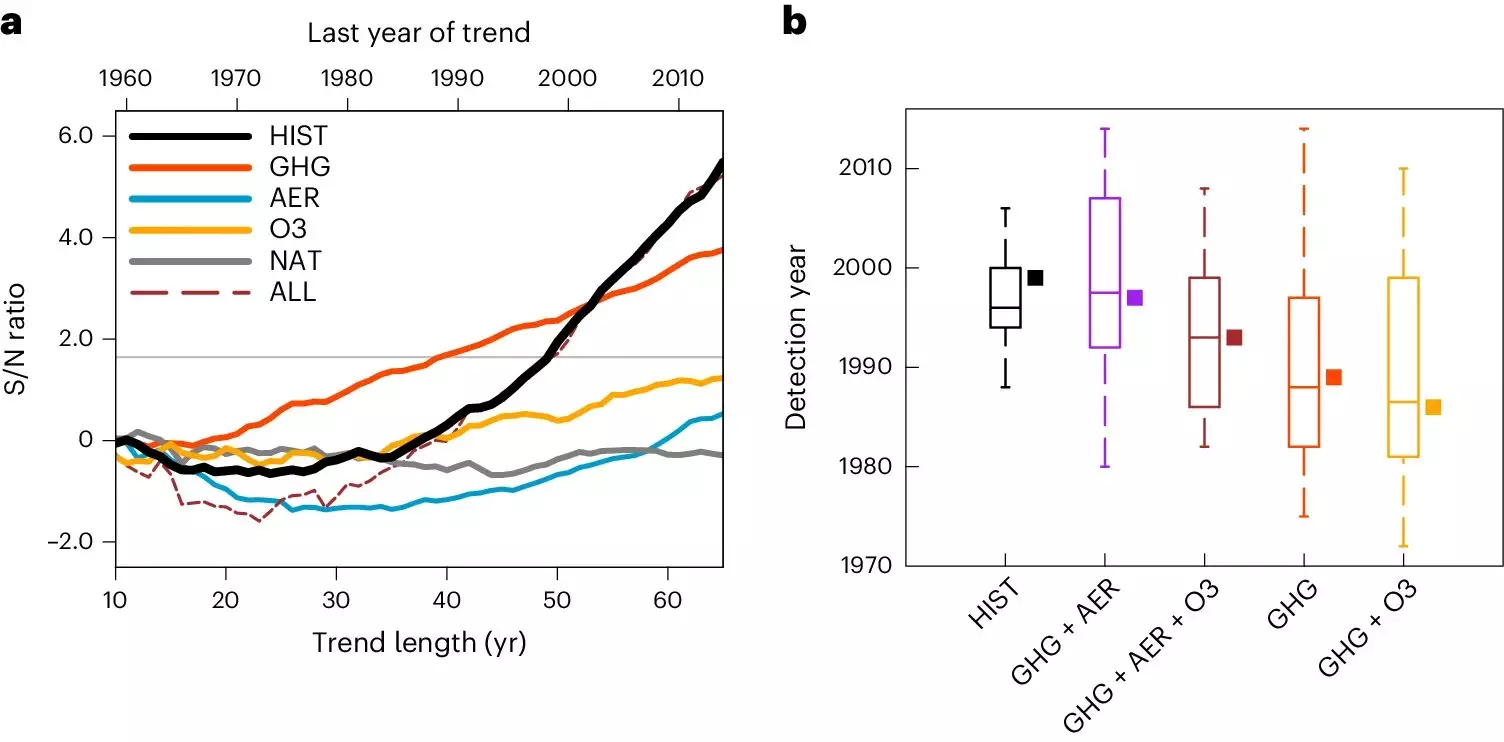Recent oceanic research has provided compelling evidence of a human “fingerprint” on climate change, specifically showing how human activities have influenced the seasonal cycle amplitude of sea surface temperatures (SST). This breakthrough discovery, as outlined in a study published in Nature Climate Change, highlights a noticeable human-caused signal in the SST seasonal cycle pattern, marking a substantial shift from natural variability. The geographical variations in SST seasonal cycle amplitude (SSTAC) point to significant changes at Northern Hemisphere mid-latitudes linked to mixed-layer depth alterations and a distinct dipole pattern between 40˚S and 55˚S driven primarily by surface wind adjustments.
The study, which analyzed four observational data sets of sea surface ocean temperatures collected from various monitoring systems since 1950, has consistently reaffirmed the presence of the human-caused signal in SSTAC. These findings were echoed by Dr. Jia-Rui Shi, a Postdoc with WHOI, who emphasized the robust and distinctive nature of the observed pattern. Model simulations also corroborated the impact of greenhouse gas increases on altering SSTAC, with additional contributions from anthropogenic aerosols and ozone forcing. The research builds upon previous climate fingerprinting work by co-author Benjamin Santer, providing a comprehensive analysis of the changing seasonal cycle of sea surface temperatures.
The research dismisses alternative explanations for recent temperature shifts, underscoring the anthropogenic influence on ocean surface temperature seasonality. This human fingerprint not only underscores the urgency of addressing climate change but also carries far-reaching consequences for marine ecosystems. As sea surface temperatures continue to rise, marine life, fisheries, and nutrient distribution patterns are all at risk of substantial disruption. The record-high upper ocean heat content in 2023 alongside increasing concerns within the scientific community highlight the pressing need for decisive action to combat global warming and its impacts on oceanic systems.
The study underscores the critical role of the oceans as a primary carbon sink, absorbing a significant portion of the carbon dioxide emissions generated by human activities. However, the ability of the ocean to sequester CO2 is contingent on temperature levels, necessitating a deeper understanding of how rising temperatures affect this process. The potential consequences of ocean acidification resulting from increased CO2 absorption pose a significant threat to marine organisms and food chain stability. As the scientific community grapples with these challenges, the importance of informed decision-making based on sound scientific evidence and an acknowledgment of the severity of human-induced climate change cannot be overstated.
Despite the advancements made in understanding the human impact on ocean temperatures and climate systems, the road ahead is filled with uncertainties and complexities. It is imperative that stakeholders across sectors heed the warnings signaled by the research findings and take proactive measures to mitigate the adverse effects of climate change on our oceans. Only through concerted efforts and a commitment to sustainability can we hope to safeguard our planet’s oceans and marine life for future generations.



Leave a Reply